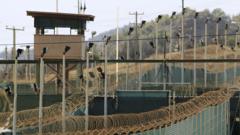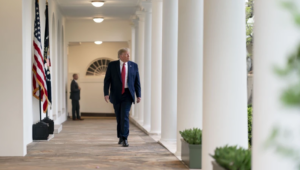In a significant move for US foreign relations and justice, eleven Yemeni detainees have been transferred from the notorious Guantanamo Bay prison to Oman, leaving only 15 individuals incarcerated at the facility. This transfer, which occurred early Monday, was the biggest single-country transfer under President Biden and showcases the ongoing U.S. efforts to reduce the detainee population at Guantanamo, described by the Department of Defense as crucial for national security interests.
US Transfers 11 Guantanamo Detainees to Oman, Marking a Historic Low

US Transfers 11 Guantanamo Detainees to Oman, Marking a Historic Low
The US military prison in Guantanamo Bay sees its detainee numbers dwindle to just 15 after 11 Yemeni prisoners are sent to Oman, bolstering hopes for closure.
This latest transfer continues a long and complex history surrounding Guantanamo Bay—a military prison established following the September 11 attacks, initially housing around 800 inmates. Among those sent to Oman were Moath al-Alwi and Shaqawi al Hajj, both of whom had protested their detention through hunger strikes and creative endeavors in prison. The decision was largely influenced by the instability in Yemen, where repatriation was deemed risky due to the ongoing civil war.
Recent shifts in detainee numbers at Guantanamo have drawn attention, especially with Khalid Sheikh Mohammed, thought to be the mastermind behind the 9/11 attacks, reportedly set to plead guilty in a deal with federal prosecutors. The implications of closing Guantanamo have been debated for years, with former President Obama pledging its closure, while subsequent administrations have taken different stances regarding the future of these detainees.
Efforts to reduce the prison population had stalled under the Trump administration but have gained renewed traction under Biden, who aims to transfer remaining inmates and ultimately shut down the facility. The enduring presence of Guantanamo and the treatment of detainees raises questions about U.S. values and its implications for international relations, particularly in contexts involving terrorism.
Recent shifts in detainee numbers at Guantanamo have drawn attention, especially with Khalid Sheikh Mohammed, thought to be the mastermind behind the 9/11 attacks, reportedly set to plead guilty in a deal with federal prosecutors. The implications of closing Guantanamo have been debated for years, with former President Obama pledging its closure, while subsequent administrations have taken different stances regarding the future of these detainees.
Efforts to reduce the prison population had stalled under the Trump administration but have gained renewed traction under Biden, who aims to transfer remaining inmates and ultimately shut down the facility. The enduring presence of Guantanamo and the treatment of detainees raises questions about U.S. values and its implications for international relations, particularly in contexts involving terrorism.






















